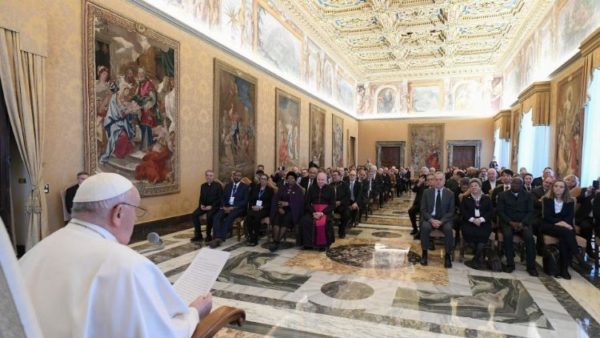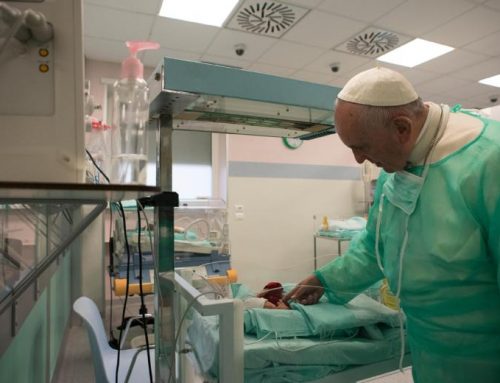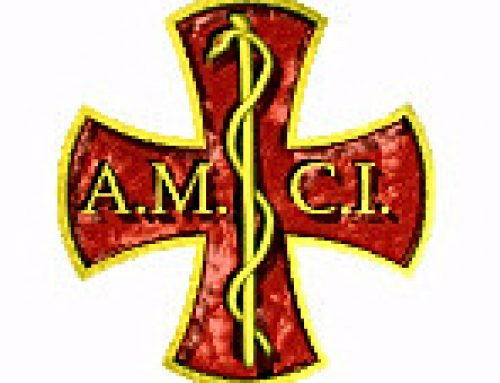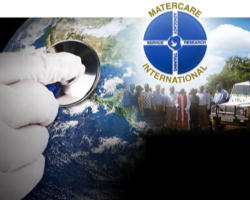llustri Signore e Signori!
Saluto S.E. Mons. Paglia, le vostre Eccellenze, Sua Eminenza e il nuovo Arcivescovo di Santiago del Cile, e vi ringrazio per il vostro impegno nel campo della ricerca delle scienze della vita, della salute e della cura; un impegno che la Pontificia Accademia per la Vita porta avanti da trent’anni.
La questione che affrontate in questa Assemblea Generale è della massima importanza: quella, cioè, di come si possa comprendere ciò che qualifica l’essere umano. Si tratta di un interrogativo antico e sempre nuovo, che le sorprendenti risorse possibili grazie alle nuove tecnologie ripropongono in forma ancora più complessa. Il contributo degli studiosi da sempre ci dice che non è possibile essere a priori “pro” o “contro” le macchine e le tecnologie, perché questa alternativa, riferita all’esperienza umana, non ha senso. E anche oggi, non è plausibile ricorrere solamente alla distinzione tra processi naturali e processi artificiali, considerando i primi come autenticamente umani e i secondi come estranei o addirittura contrari all’umano: questo non va. Quello che occorre fare, piuttosto, è inscrivere i saperi scientifici e tecnologici all’interno di un più ampio orizzonte di significato, scongiurando così l’egemonia tecnocratica (cfr Lett. enc. Laudato si’, 108).
Consideriamo, ad esempio, il tentativo di riprodurre l’essere umano con i mezzi e la logica della tecnica. Un tale approccio implica la riduzione dell’umano a un aggregato di prestazioni riproducibili a partire di un linguaggio digitale, che pretende di esprimere, attraverso codici numerici, ogni tipo di informazione. La stretta consonanza con il racconto biblico della Torre di Babele (cfr Gen 11,1-11) mostra che il desiderio di darsi un linguaggio unico è inscritto nella storia dell’umanità; e l’intervento di Dio, che troppo frettolosamente viene inteso solo come una punizione distruttiva, contiene invece una benedizione propositiva. Esso, infatti, manifesta il tentativo di correggere la deriva verso un “pensiero unico” attraverso la molteplicità delle lingue. Gli esseri umani vengono così messi di fronte al limite e alla vulnerabilità e richiamati al rispetto dell’alterità e alla cura reciproca.
Certo, le crescenti capacità della scienza e della tecnica conducono gli esseri umani a sentirsi protagonisti di un atto creatore affine a quello divino, che produce l’immagine e la somiglianza della vita umana, inclusa la capacità del linguaggio, di cui le “macchine parlanti” sembrano essere dotate. Sarebbe allora nel potere dell’uomo infondere lo spirito nella materia inanimata? La tentazione è insidiosa. Ci viene quindi chiesto di discernere come la creatività dell’uomo affidato a sé stesso possa esercitarsi in modo responsabile. Si tratta di investire i talenti ricevuti impedendo che l’umano sia sfigurato e che siano annullate le differenze costitutive che danno ordine al cosmo (cfr Gen 1-3).
Il compito principale si pone quindi a livello antropologico e richiede di sviluppare una cultura che, integrando le risorse della scienza e della tecnica, sia capace di riconoscere e promuovere l’umano nella sua specificità irripetibile. Occorre esplorare se tale specificità non sia da collocare addirittura a monte del linguaggio, nella sfera del pathos e delle emozioni, del desiderio e dell’intenzionalità, che solo un essere umano può riconoscere, apprezzare e convertire in senso relazionale a favore degli altri, assistito dalla grazia del Creatore. Un compito culturale, dunque, perché la cultura plasma e orienta le forze spontanee della vita e le pratiche sociali.
Cari amici, come è impegnativo l’argomento che affrontate, impegnative sono anche le due modalità con cui intendete farlo. In primo luogo, perché vedo in voi lo sforzo di attuare un effettivo dialogo, uno scambio transdisciplinare in quella forma che Veritatis gaudium descrive «come collocazione e fermentazione di tutti i saperi entro lo spazio di Luce e di Vita offerto dalla Sapienza che promana dalla Rivelazione di Dio» (n. 4c). Apprezzo che la vostra riflessione si svolga nella logica di un vero e proprio «laboratorio culturale in cui la Chiesa fa esercizio dell’interpretazione performativa della realtà che scaturisce dall’evento di Gesù Cristo e che si nutre dei doni della Sapienza e della Scienza di cui lo Spirito Santo arricchisce […] il Popolo di Dio» (ivi, 3). Per questo, incoraggio tale forma di dialogo, e questo dialogo permetterà a ciascuno di esporre le proprie considerazioni interagendo con gli altri in un reciproco scambio. È questa la via per andare oltre la giustapposizione dei saperi, avviando una rielaborazione delle conoscenze attraverso il vicendevole ascolto e la riflessione critica.
In secondo luogo, nella dinamica del vostro incontro si vede un modo di procedere sinodale, giustamente adattato per affrontare gli argomenti al centro della missione dell’Accademia. Si tratta di uno stile di ricerca esigente, perché comporta attenzione e libertà di spirito, apertura a inoltrarsi su sentieri inesplorati e sconosciuti, affrancandosi da ogni sterile “indietrismo”. Per chi si impegna in un serio ed evangelico rinnovamento del pensiero, è indispensabile mettere in questione anche opinioni acquisite e presupposti non criticamente vagliati.
In questa linea, il cristianesimo ha sempre offerto contributi di rilievo, riprendendo da ogni cultura in cui si è inserito le tradizioni di senso che vi trovava inscritte: reinterpretandole alla luce della relazione con il Signore, che nel Vangelo si rivela, e avvalendosi delle risorse linguistiche e concettuali presenti nei singoli contesti. Un cammino di elaborazione lungo e sempre da riprendere, che richiede un pensiero capace di abbracciare più generazioni: come quello di chi pianta alberi, i cui frutti saranno mangiati dai figli, o di chi costruisce cattedrali, che verranno completate dai nipoti.
È questo atteggiamento aperto e responsabile, docile allo Spirito il quale, come il vento, «non sai da dove viene né dove va» (Gv 3,8), che desidero invocare dal Signore per tutti voi, augurandovi un lavoro proficuo e fecondo. Di cuore vi benedico. E vi chiedo per favore di pregare per me. Grazie!
[00271-IT.02] [Testo originale: Italiano]
Traduzione in lingua inglese
Distinguished Ladies and Gentlemen,
I greet Archbishop Paglia, Your Excellencies, Your Eminence and the new Archbishop of Santiago de Chile, and I thank you for your commitment to advancing research in the areas of the life sciences, health and healing, a commitment that has marked the work of the Pontifical Academy for Life for these thirty years of its existence.
The question that you are addressing in this General Assembly is one of utmost importance, namely, how we are to understand what is distinctive about the human being. It is a question that is ancient and yet always new, one that the remarkable resources made available by new technologies is posing to us in ever more complex ways. Scholars have always made it clear that one cannot take a stand, a priori, either ‘for’ or ‘against’ machines and technologies; in terms of our human experience, such an antithesis proves meaningless. Today too, an appeal to the distinction between natural and artificial processes, viewing the former as authentically human and the latter as foreign or even contrary to what is human, proves similarly inadequate. It does not work. What is needed, instead, is to situate scientific and technological knowledge within a broader horizon of meaning, and thus to avert the hegemony of a technocratic paradigm (cf. Laudato si’, 108).
Let us take, for example, the attempt to reproduce the human being by the means and methods provided by technology. Such an approach entails the reduction of the human being to an aggregate of reproducible performances based on a digital language which presumes that every type of information can be expressed using numerical codes. The obvious parallel to the biblical story of the Tower of Babel (cf. Gen 11:1-9) shows how the desire to create a single language is deeply rooted in the history of humanity. God’s intervention, often all too hastily written off as mere punishment, can instead be seen in positive terms as a kind of blessing, as an attempt to counter the drift towards a ‘pensée unique’ through a proliferation of human languages. In this way, human beings would come face to face with their limitations and vulnerability, and be challenged to respect differences and to show concern for one another.
To be sure, the increased capabilities of science and technology can lead human beings to see themselves as engaged in a creative act akin to that of God, producing an image and likeness of human life, including the capacity for language with which “talking machines” appear to be endowed. Would it then be within human power to infuse spirit into inanimate matter? The temptation is insidious. What is being asked of us is to discern how the creativity entrusted to human beings can be exercised responsibly. In other words, how can we invest the talents we have received while preventing the disfigurement of what is human and the cancellation of the constitutive differences that give order to the cosmos (cf. Gen 1-3).
The principal task, then, is an anthropological one: we are challenged to develop a culture that, by integrating the resources of science and technology, is capable of acknowledging and promoting the human being in his or her irreducible specificity. There is a need to explore whether this specificity is to be found even upstream of language, within the sphere of pathos and emotions, desire and intentionality, which only human beings can perceive, appreciate and convert into positive and beneficial relationships with others, aided by the grace of the Creator. This is ultimately a cultural task, since culture shapes and directs the spontaneous forces of life and social mores.
Dear friends, the topic you are addressing is indeed challenging, as are the two ways in which you intend to approach it. I realize, first, that you are working to bring about an effective dialogue, a cross-disciplinary exchange, in the form that Veritatis Gaudium describes as “situating and stimulating all disciplines against the backdrop of the light and life offered by the Wisdom streaming from God’s revelation” (No. 4c). I also appreciate the fact that your reflection is being conducted, as it were, in an authentic “cultural laboratory in which the Church carries out the performative interpretation of the reality brought about by the Christ event, and is nourished by the gifts of wisdom and knowledge by which the Holy Spirit enriches the People of God” (ibid., 3). I can only encourage this kind of dialogue, which allows each person to offer his or her own reflections while interacting with others in a mutual exchange of views. This is the way to overcome the mere juxtaposition of disciplines and to undertake a revision of our knowledge through reciprocal listening and critical reflection.
Secondly, in the way your discussions are planned, we can see a synodal method of proceeding, suitably adapted to address those topics central to the Academy’s mission. This process is demanding, since it involves careful attention and freedom of spirit, and readiness to set out on unexplored and unknown paths, free of useless attempts to “look back”. For those committed to a serious and evangelical renewal of thought, it is essential to call into question even settled opinions and assumptions that have not been critically examined.
In this regard, Christianity has always offered significant contributions, absorbing meaningful elements from every culture where it has taken root and reinterpreting them in the light of Christ and the Gospel, appropriating the linguistic and conceptual resources present in various cultural settings. This is a lengthy and ongoing process demanding an intellectual approach capable of embracing numerous generations; it can be compared to the wisdom and vision of those who plant trees knowing that their fruit will be consumed by their children, or those who build cathedrals knowing that they will be completed by future generations.
It is this same attitude, open and responsible, and docile to the Spirit who, like the wind, blows where it wills (cf. Jn 3:8), which I ask the Lord to grant to all of you. I offer you my prayerful good wishes that your deliberations will prove enriching and fruitful. I cordially bless you and I ask you, please, to remember me in your prayers. Thank you!
[00271-EN.02] [Original text: Italian]
Ai Membri della Pontificia Accademia per la Vita – Attività del Santo Padre Francesco | Vatican.va









